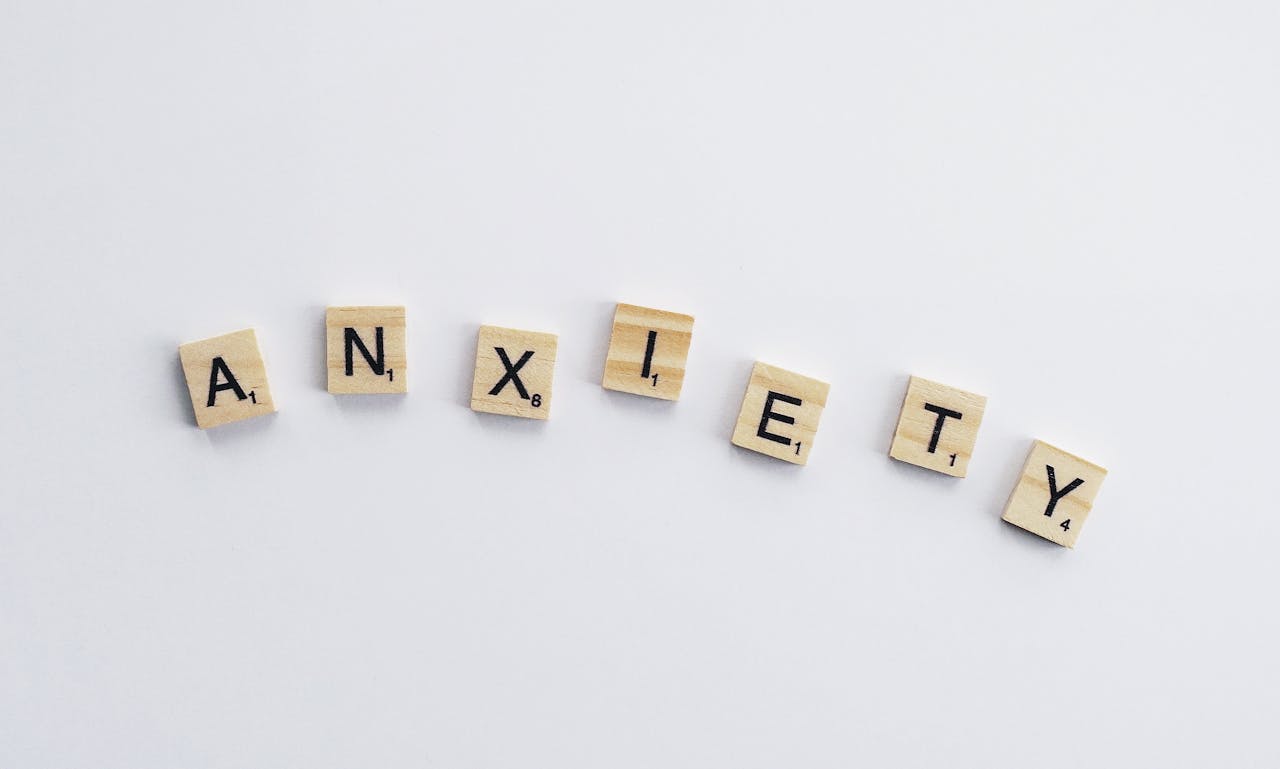Feeling Overwhelmed: Causes and Coping Mechanisms

Have you ever been paralysed by the weight of everything on your plate? Deadlines loom, responsibilities pile up, and suddenly, even the simplest tasks feel impossible to tackle. This is what it means to feel overwhelmed. It’s not just about being busy; it’s an emotional and mental flood that leaves us feeling drained, disoriented, and unsure of how to move forward.
Recognising and addressing these feelings is essential to regain control and preserve our overall well-being. Understanding what it means to be overwhelmed is the first step toward managing it effectively, and this article is here to guide you through that journey.
What It Means to Feel Overwhelmed
Feeling overwhelmed is a state where the demands on your time, energy, or emotional capacity exceed what you can manage. It’s not just being busy—it’s a deeper sensation of being mentally and emotionally overloaded. This feeling can disrupt your ability to think clearly, make decisions, or take effective action, leaving you stuck and unsure of how to move forward.
It’s a human experience, a natural response to being faced with too much at once. Understanding this feeling is vital because it helps you realise that it’s not a reflection of your abilities but rather a sign that you need to pause, recalibrate, and take care of yourself.
Is Feeling Overwhelmed Always Negative?
While feeling overwhelmed is often associated with stress and discomfort, it doesn’t always stem from negative circumstances. There are moments when this flood of emotion arises from excitement or joy—times when life presents opportunities or milestones that challenge you to grow. These experiences may feel intense but are rooted in positive change and progress.
At the same time, overwhelming feelings from stressful situations can feel heavy and suffocating. They may drain your energy and cloud your judgment. Recognising that overwhelmed feelings can arise from both positive and negative circumstances allows you to approach them with more understanding and self-compassion.
Common Triggers of Feeling Overwhelmed
The triggers for feeling overwhelmed are often varied and complex. They can come from external pressures, such as heavy workloads, tight schedules, or interpersonal challenges. These external demands can create a sense of urgency and leave you feeling stretched too thin, unable to meet all your expectations.
Worrying about outcomes, overthinking situations, or setting unreasonably high standards for yourself can contribute to feeling overwhelmed. These internal and external triggers often work together, amplifying the sense that everything is too much to handle simultaneously. Recognising these triggers is an important first step in regaining control.
The Impact of Overwhelm on Your Mind and Body
Feeling overwhelmed affects both your mental and physical well-being. Mentally, it can make it hard to concentrate, organise your thoughts, or make decisions. You might feel scattered or stuck, unable to move forward with clarity or focus.
Physically, overwhelm can manifest as fatigue, restlessness, or tension. It can even take a toll on your overall health if left unchecked, making it harder for your body to recover and recharge. These effects are your mind and body’s way of signalling that something needs to change, urging you to slow down and address the situation.
3 Simple Steps to Feel Less Overwhelmed
When life is spinning out of control, it can be difficult to know where to start. However, there are simple and effective steps you can take to regain a sense of calm and clarity. These steps are not about solving everything at once but about creating space to breathe and reset. Let’s explore these practical ways to feel less overwhelmed and more in control.
1. Taking breaks when things feel too much
When you’re overwhelmed, your first instinct might be to push through, but this often only deepens the feeling of being stuck. Taking a break is not giving up—it’s giving yourself the chance to reset your mind and body. Even briefly, stepping away helps reduce stress and allows you to return to tasks with renewed focus and energy.
During these breaks, do something that soothes you. This could mean a few minutes of deep breathing, a short walk, or simply sitting silently with a cup of tea. The goal is to interrupt the cycle of overwhelm and give yourself the space to regain perspective. Remember, pausing doesn’t delay progress; it helps ensure that when you return, you’re better equipped to face what’s ahead.
2. Learning to prioritise tasks
When everything feels urgent, it’s easy to fall into a spiral of doing everything at once—or worse, doing nothing at all. Learning to prioritise tasks is a powerful way to break free from that overwhelm. Start by identifying what truly needs your immediate attention. Ask yourself: “What is the most important thing I need to do right now?” Focus on that task, and let the others wait their turn.
Using tools like a to-do list can help, but avoid overloading it. Break tasks into smaller, manageable steps, and celebrate each one you complete. Prioritisation isn’t about ignoring responsibilities; it’s about tackling them in a way that feels achievable. Over time, this practice builds confidence and a sense of accomplishment, replacing the chaos with clarity.
3. Talking to someone you trust
One of the most powerful ways to ease feelings of overwhelm is to share them with someone you trust. Whether it’s a friend, family member, or mentor, talking openly about what you’re experiencing can bring relief and perspective. Often, just saying things out loud helps untangle the knot of thoughts in your mind.
The person you talk to doesn’t need to solve your problems—they just need to listen. Compassionate listening can make you feel less alone and remind you that support is available. If you struggle to find someone to talk to, consider contacting a counsellor or support group. Connecting with others, whether casually or professionally, is a reminder that seeking help is okay when needed.
Feeling overwhelmed is a natural part of life, but sometimes it can become too much to handle alone. Knowing when to seek extra support is a sign of strength, not weakness. If you struggle to manage daily tasks, are persistently anxious, or cannot enjoy the things that once brought you happiness, it may be time to reach out for help.
Pay attention to physical and emotional cues as well. Chronic fatigue, frequent headaches, or trouble sleeping could indicate that the stress has taken a toll on your body. Emotionally, if feelings of overwhelm lead to irritability, sadness, or even a sense of hopelessness, it’s important to take these signals seriously. Reaching out to a trusted friend, family member, or professional can provide the guidance and perspective needed to help you regain control and clarity.
You’re Not Alone – Overcoming Overwhelm with Confidence
Feeling overwhelmed can sometimes make you feel isolated as if no one else understands what you’re going through. But the truth is, you’re not alone. So many people experience moments like this, and there’s a shared resilience in learning to navigate them together. Confidence comes from recognising that you can overcome these challenges, one small step at a time.
It starts with self-compassion. Instead of criticising yourself for feeling this way, acknowledge your emotions and allow yourself the grace to find solutions. Build a toolkit of coping strategies, lean on your support network, and remind yourself that it’s okay to seek help when needed.
Every step to manage these feelings is toward a stronger, more balanced you. Remember, it’s not about perfection—it’s about progress. If you’re ready to take that next step, don’t hesitate to reach out professional life coach for guidance. You’ve got this, and support’s always available to help you along the way.
Let’s take that first step together—because you deserve to feel at peace with your life.
- September 2025
- August 2025
- July 2025
- June 2025
- May 2025
- April 2025
- March 2025
- February 2025
- January 2025
- December 2024
- November 2024
- October 2024
- September 2024
- August 2024
- July 2024
- June 2024
- May 2024
- December 2023
- November 2023
- August 2023
- July 2023
- June 2023
- May 2023
- April 2023
- March 2023
- February 2023
- January 2023
- December 2022
- November 2022
- October 2022
- September 2022
- August 2022
- July 2022
- June 2022
- May 2022
- April 2022
- March 2022
- February 2022
- January 2022
- December 2021
- November 2021
- October 2021
- September 2021
- August 2021
- July 2021
- June 2021
- May 2021
- April 2021
- March 2020
- February 2020
- January 2020
- December 2019
- November 2019
- October 2019
- September 2019
- August 2019
- July 2019
- June 2019
- May 2019
- April 2019
- March 2019
- February 2019
- January 2019
- December 2018
- November 2018
- October 2018
- September 2018
- August 2018
- July 2015
- May 2014








